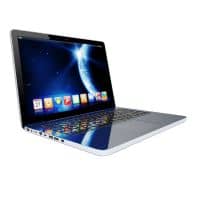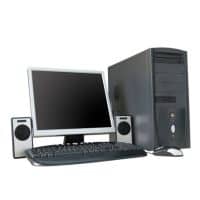As we strive to unravel our ancestry and understand our roots, devices for genealogy research become essential in documenting our familial history.
In this tech-driven age, mobile devices and computers have transformed this pursuit, offering an array of applications to aid in tracing lineage, managing data, and analyzing patterns.
This exploration begins with understanding the basic tenets of genealogy and devices for genealogy research and progresses through an assessment of the functionality and suitability of various tech platforms for aiding this research.
In this evaluation, we explore:
- A spectrum of devices for genealogy research,
- Ranging from compact, portable cell phones,
- To robust, high-capacity desktops,
Each is highlighted for its unique advantages and limitations in conducting ancestral investigations.
Unearth the secrets of your lineage! Delve into our newest article, “Tracing Ancestors | Free Starter Guide” and decipher the stories of your ancestors. Embark on a quest to reveal your family history with just one click. [ Dive In Now!] 🌳🔍
Understanding Genealogy Research
A vast array of technological resources support the fascinating venture of diving headfirst into the world of genealogy research.
In the most basic terms, genealogy research deciphers the hodgepodge of human heritage.
It’s a methodical probe into genuine ancestral stories, acquainting one with their forefathers through a blend of traditional and technological channels.
By employing modern technology, navigating through thousands of years of intertwined familial narratives can be less tedious and more precise.
Unraveling the layers of an ancestral path is akin to harnessing the transformative power of technology to journey back in time, shedding light on genealogical mysteries.
Primarily, genealogical research hinges on the curation and analysis of historical documents such as birth certificates, census records, and newspaper clippings.

These formidable vaults of information offer vital facts and can throw open the door to discovering alternatives one never knew existed.
Another integral facet of genealogical research is DNA testing, a cutting-edge technology that has revolutionized genealogy.
DNA testing can delineate biological lineage with fascinating precision, illuminating the story etched within our genes.
Technology-related companies like AncestryDNA and MyHeritage make it possible to analyze one’s ethnic mix, trace the migration paths of forefathers, and connect with distant kin.
Through digitized resources like these, the immense undertaking of genealogy research transforms from daunting to thrillingly achievable.
A methodical approach to genealogy research involves accumulating data through interviews, paperwork, DNA testing, and then sifting through this colossal chronicle.
Synthesizing these random snippets of information to form a coherent narrative of one’s lineage may sound imposing, but that’s where genealogy software steps in.
They act as a lighthouse, guiding researchers through the swirling sea of information. Genealogy software like Family Tree Heritage Gold 16 simplifies the process by assisting with organization, research, and data analysis.

Users have the advantage of digital databases and advanced search engine features to filter out relevant data.
The ability to generate charts and reports and share family trees provides an interactive experience, making genealogical research more experiential and accessible.
In a world where the past invariably influences the future, knowing the past might deepen our understanding of the present.
The combination of meticulous review, traditional research methods, and modern technology has democratized genealogy research.
It’s no longer an elite privilege but an intriguing quest accessible to all with an interest in their roots.
In an era where third-party apps, AI, and voice recognition technologies revolutionize every aspect of life, genealogy research is not left behind.
Technologies reclaim our past, reconnect with lost heritage, and construct a bridge between then and now.
So, if hunting for age-old family secrets hidden inside dusty documents or locked within your DNA sounds enticing, the world of genealogy awaits.
By harnessing the power of technology, anyone can decode their ancestral odyssey, making genealogy research a truly transformative journey of self-discovery.

Photo by neonbrand on Unsplash
Cell phone Genealogy Research
Unveiling the Interface: Cell Phones And Genealogy Research
Wrapped up in compact handheld devices, cell phones are constantly penetrating new spheres.
In genealogy research, their impact is significantly transformative, opening up new possibilities as well as confronting some unique adversities.
Approaching genealogy research via cell phones swathes the process in an accessible, dynamic cloak of mobility.
No longer tethered to traditional research spaces, genealogists can now embark on their ancestral hunts from virtually anywhere.
Suddenly, that bus journey during rush hour or the office lunch break is an expansive window of opportunity, bringing genealogical quests closer to a real-time pursuit.
Cell phone connectivity furthers the frontiers of research, facilitating easier collaboration within the genealogy community.
Real-time discussions, the ability to exchange digitized information, and almost instantaneous access to countless databases around the globe are empowering features
The incredible network effect that handheld devices have created is constantly increasing the amount of information available and accelerating the pace of research.
Moreover, innovations in mobile technology have led to a host of specialized genealogy apps that streamline the entire workflow.
These applications synthesize data, offer tools for family tree construction, generate reports, and, most importantly, retain and access the information organized coherently across devices.
They also witness regular updates, improving their functionality and usability to further enhance the genealogical expedition.
Yet, as with all things tech-related, these benefits come with their share of roadblocks. Privacy, for instance, is a peculiarly thorny issue.

The inherent digital nature of research conducted through cell phones puts sensitive personal and family data within the crosshairs of potential security breaches.
Stringent cybersecurity measures and responsible data handling are not just optional but absolutely vital.
User interface and user experience issues also crop up with mobile genealogy research.
The compressed-screen real estate can limit detailed data visualization, making intricate analysis challenging.
Further complicating navigation, apps can feature steep learning curves, particularly for tech-averse individuals.
Cell phones’ reliance on internet connectivity can also be problematic.
The systemic disparities in global internet access imply that the benefits of mobile genealogy research are not universally distributed.
In regions handicapped by poor connectivity, such research can prove frustrating and inefficient—a digital divide that needs addressing.
Despite these challenges, the narrative arc of cell phones in genealogy research looks optimistic.
As technologies mature and security mechanisms tighten, these digital research avenues will likely become mainstream.
Widening the doors to our collective past, they hold the promise to redefine our identities and heritage in profound, tech-empowered ways.
Indeed, the roots of our ancestry are now intertwined with the threads of technology, a testament to our ever-evolving narrative.

Photo by monishaselv on Unsplash
Unlocking the Past: Tablet Applications as Devices for Genealogy Research
Tablets are, undoubtedly, revolutionizing the realm of genealogy research, streamlining old processes, and creating new pathways for discovery.
Here we delve into the unique advantages they bring to this important expedition of personal history and heritage.
Tablets bring portability to genealogy research. In an era where everything is going digital, heavy boxes of family records are giving way to light and versatile tablets brimming with high-quality digital reproductions, photographs, and scans.
Tablets are compact, yet their screen sizes are ample enough to comfortably read old documents and view ancient photographs without the strain associated with smaller smartphone screens.
A tablet’s versatile functionality is another boon for genealogy enthusiasts.
From scanning apps to transcription tools, tablets are equipped to multitask, unlike any other device.
OCR (Optical Character Recognition) apps allow researchers to convert pictures of text into digital words.
Which are then searchable, making the hunt for specific information in voluminous records exponentially faster.
Bridging the gap between desktop power and mobile portability, tablets are ideal for utilizing genealogy-specific software on the go.

With robust processors similar to a compact computer and a user-friendly touch interface, using apps like Ancestry, MyHeritage, or FamilySearch becomes a much more streamlined process.
Moreover, the use of cloud services integrated into tablets helps researchers store, organize, and sync data across multiple devices.
With genealogy, researchers are frequently dealing with large files such as high-resolution photographs or extensive family trees.
Tablet-integrated storage solutions like Google Drive or Dropbox make it effortless to manage these hefty files.
One other perk unique to tablets is the combination of high-resolution cameras with larger screens.
Researchers can photograph documents, heirlooms, or places directly into their research file.
While the larger screen allows immediate and clear reviewing, minimizing errors.
Social interaction and collaboration common in genealogy research also find an organic habitat on tablets.

- Be it taking part in genealogy groups,
- Sharing findings with distant relatives,
- Or live streaming visits to ancestral hometowns or grave sites, it is comfortable and convenient.
While they offer a host of advantages, researchers must keep in mind some concerns.
Like any internet-connected device, tablets risk data security and privacy
Using verified apps, secure and private Wi-Fi networks, along with regular software updates can serve as protective measures.
The future of genealogy research intertwined with tablets looks promising, morphing into an approachable, interactive, and time-effective hobby.
Here’s to the expanded potential of unearthing treasured familial roots and heritage through the ever-evolving realm of technology.
The rise of the tech-augmented genealogist is truly upon us.
Leveraging Laptops: Maximizing Devices for Genealogy Research

Exploring the Power of Laptops: Devices for Genealogy Research Unveiled
Embracing technology is essential in devices for genealogy research, where mobile phones and tablets hold crucial roles.
Yet, the laptop emerges as a potent tool, bringing unique advantages in enhancing the efficacy and depth of genealogical explorations.
One of the standout benefits of using devices for genealogy research is the sheer convenience they offer.
Laptops have most of the advantages of desktop computers, including large screens, spacious hard drives, and powerful processors, but with the added perk of mobility.
Unlike stationary desktops, laptops allow researchers to bring their work anywhere—to local archives, family reunions, or even on vacation.
Screen size is a vital factor affecting productivity in genealogy research. Laptops, with their larger screens,
- Facilitate the easy viewing of multiple windows,
- Extensive spreadsheets,
- High-resolution images,
- Compared to the more restrictive displays of tablets or mobile phones.
Using laptops as devices for genealogy research optimizes the management of various tabs.
Also enhancing the cross-referencing process is essential to unraveling the complexities of genealogical exploration.
Moreover, laptops have full-sized keyboards, which provide faster typing and data entry than touch-screen keyboards on tablets and phones.
And while transcription software can help, it’s not always accurate with old documents, making manual transcription necessary at times.
The laptop’s robust processing power enables efficient multitasking, running multiple research-related applications, and quick data analysis.
This can fast-track the arduous process of using devices for genealogy research, making complex ancestral puzzles easier to piece together.
Laptops stand out as optimal devices for genealogy research due to their enhanced compatibility with genealogy software.
Most genealogy applications are primarily designed for computers, ensuring they perform best on laptops with superior support and features as compared to other devices like mobile phones and tablets.
Laptops excel as devices for genealogy research by offering substantial storage space, essential for housing the myriad of documents and photographs intrinsic to genealogical exploration.
Because they have a lot of different ways to connect, it is easier to add extra devices like scanners, and you do not need the special adaptors that are often needed for tablets and phones.
Despite the portability of laptops, they provide a stronger sense of data protection.
Unlike smartphones and tablets, which are prone to damage or theft due to constant mobility, laptops are often safely stored at home or in offices.
They also allow for creating backups on external devices, assuring explorers of a secured genealogy expedition.
It’s clear that laptops, with their larger screens, more substantial processing power, compatibility with software, and secure storage
It makes laptops the preferable choice for detailed, sophisticated genealogy research.
They’re a happy medium between the power and reliability of a desktop and the portability of a smartphone or tablet.
For anyone committed to delving into the intricate world of genealogy, equipping themselves with a robust laptop can be a decisive factor in revolutionizing their research journey.

Desktop Significance in Genealogy Research
After an in-depth exploration of technology’s profound impact on genealogy research, the pivotal role of desktop computers remains a crucial inquiry.
In our dynamic digital age, where mobility and portability are paramount, the exceptional capabilities and benefits that desktop computers contribute to devices for genealogy research are undeniable and vital.
A desktop computer’s expansive display allows researchers to conduct intricate comparative analyses of genealogical data with multiple windows open concurrently.
This ease of multi-window navigation can boost research productivity by enabling easy reference and cross-checking of information, an aspect that rivals handheld devices.
Moreover, desktop computers offer superior processing power and memory capabilities.
This is vital in genealogy research, where researchers often grapple with significant volumes of complex data that need quick, efficient analysis and storage.

The swift processing prevents lag, especially when using multiple applications or heavyweight genealogy-specific software, going beyond the capabilities of mobile devices or laptops.
Uniquely beneficial is the desktop’s ergonomic design. Large keyboards make typing and entering data faster and more accurate.
This is especially important when digitizing transcripts of old records or quickly entering new genealogical data.
This feature is especially beneficial for researchers indulging in long hours of investigation, ensuring minimal strain and maximal productivity.
Desktop computers, with their extensive configuration capabilities, stand out as central hubs in the realm of devices for genealogy research
Their adaptability allows for the addition of various peripherals, such as:
- High-resolution scanners for capturing old documents.
- And photographs or mapping drives for data backup.
- Catering specifically to diverse research necessities.
- Demonstrating unmatched versatility.
Importantly, desktop computers offer heightened security measures ideal for protecting genealogy data, which are unnecessary on mobiles or tablets.
Harnessing encryption tools or employing robust firewalls glean the edge in safekeeping private, sensitive familial information.
Advanced recovery procedures further ensure protection against catastrophic data loss.
Also, it provides researchers with peace of mind that their contemporaries struggle to match.
My Preferred Device for Genealogical Research
Throughout my genealogical journey, various devices have played significant roles in uncovering the stories of my ancestors.
Among them, the laptop holds a special place in my heart, emerging as my absolute favorite.
The freedom it affords, allowing me to delve into research from any location, has an undeniable appeal.
The world becomes my study room, not constrained within four walls, making ancestry research feel like an expedition in and of itself.
I have contemplated the utility of a desktop for this purpose, appreciating its ability to support multiple monitors simultaneously.
This feature undoubtedly enhances the ease of navigating through numerous records, tabs, and resources, making the desktop a potent tool for detailed, multifaceted research.
However, the adaptability of a laptop triumphs for me. Despite the conveniences of a desktop, the laptop’s portability enables a more fluid, flexible research process, aligning with my on-the-go lifestyle.
Conclusion
In conclusion, desktop computers hold a paramount position in the realm of devices for genealogy research.
Despite the influx of various portable devices, desktops reign supreme due to their expansive screens, potent processors, ergonomic comfort, adaptive features, and fortified data security.
In our rapidly digitizing world, desktops symbolize a powerful amalgamation of tradition and innovation, cementing their indispensability as devices for genealogy research.
Future technologies used in genealogy research will need to recognize how important desktop computers are and make them more useful by adding new features and functions that keep up with changes in technology.

Throughout this exploration, technology emerges as a pivotal companion in devices for genealogy research, providing a spectrum of platforms customizable to meet diverse research necessities.
Though cell phones and tablets underscore portability and convenience, their screens and processing power may limit their utility for more extensive projects.
On the other hand, laptops strike a balance between portability and power, while desktops, despite their restrictions on movement, provide unparalleled capacity for complex, large-scale research.
Therefore, the choice of device ultimately hinges on the user’s individual needs, the available resources, and the scope of their genealogy project. Each tool, with its distinct features, contributes towards developing a richer, fuller picture of our familial past.
Frequently Asked Questions (FAQ)
- What kinds of devices are most effective for genealogy research?
- Various devices, such as desktop computers, laptops, tablets, and smartphones, each offer unique advantages for conducting genealogy research, allowing for flexibility, power, and mobility according to your needs.
- How secure are these devices for storing sensitive genealogical information?
- Device security varies, and it is essential to ensure that any device used for genealogy research has robust security features and practices to protect sensitive information.
- Which devices are most compatible with popular genealogy software and applications?
- Laptops and desktop computers tend to offer the most compatibility and functionality with a broad range of genealogy software and applications.
- Can tablets and smartphones handle the complexities of genealogy research?
- Tablets and smartphones offer portability and convenience, and there are apps available that facilitate genealogy research, but they may not be as powerful or versatile as computers.
- What should I consider when choosing a device for genealogy research?
- Consider factors such as processing power, storage capacity, screen size, compatibility, and overall usability when selecting a device for genealogy research.









